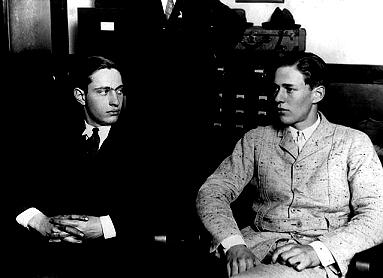
Philosophy of Human Nature
| Andrew
Mills'
Homepage |
Course
Resources
Homepage |
Dept.
of Religion
and Philosophy |
 |
Integrative
Studies 250
Philosophy of Human Nature Fall Quarter 2001
|
Instructions
Please answer two questions from the first group, and two questions from the second group.
You may consult your class books and your notes, but you may not consult with any other person, nor may you make use of any research resources (library, internet) beyond your books and course notes. If you have questions, please ask Prof. Mills.
Your answers should be typed, double-spaced, and are due to Prof. Mills by 3:00 p.m. on Tuesday 9 October. Your answers can be sent by email, if you wish, or you can drop off your exam in Prof. Mills’ mailbox (second floor of Towers), or give it to him in person.
Make sure that you answer all parts of the questions. I think that each question can be adequately answered in 500 words, and many questions may not require that length.
Group I (Answer two of these questions)
1. We have discussed two analyses, or conceptions, of the notion of freedom. (a) What are these two conceptions of freedom? (b) How do they differ? (c) Which one is preferred by compatibilists? (d) Why?
2. "Every event (including human doings) has a cause, and those causes are themselves events" Some see this claim as implying, first, that no human act is freely done and, second, that human beings are never morally responsible for what they do. (a) Explain why someone might think this. (b) Explain why simply rejecting the above claim and saying that the free human acts are the ones that have no cause at all does not regain moral responsibility.
3. Libertarianism is one of the three positions available in the debate over free will. (a) What is Libertarianism? (b) What do Libertarians and Hard Determinists agree about? (c) What do they disagree about? (d) Why, if Libertarianism is true, is it not possible to have a science of human behavior? (Answering this last question may require that you say something about what a science is.)
Group II (Answer two of these questions)
4. Was Judd Steiner responsible for killing Paulie Kessler? Support your answer with evidence from the novel Compulsion.
5. Berns and Lewis both argue, in one way or another, that a therapeutic conception of punishment does not properly respect human dignity. (a) What do they mean by human dignity (Berns’ phrase) or the rights of a human being (Lewis’ phrase)? (b) Why does the therapeutic view of punishment not respect this? (c) Why does the retributivist view of punishment succeed at respecting human dignity?
6. What are Darrow’s reasons for claiming that Dickie Loeb should not be hanged? Set these reasons out as carefully and clearly as you can. Are these good reasons? Why or why not?